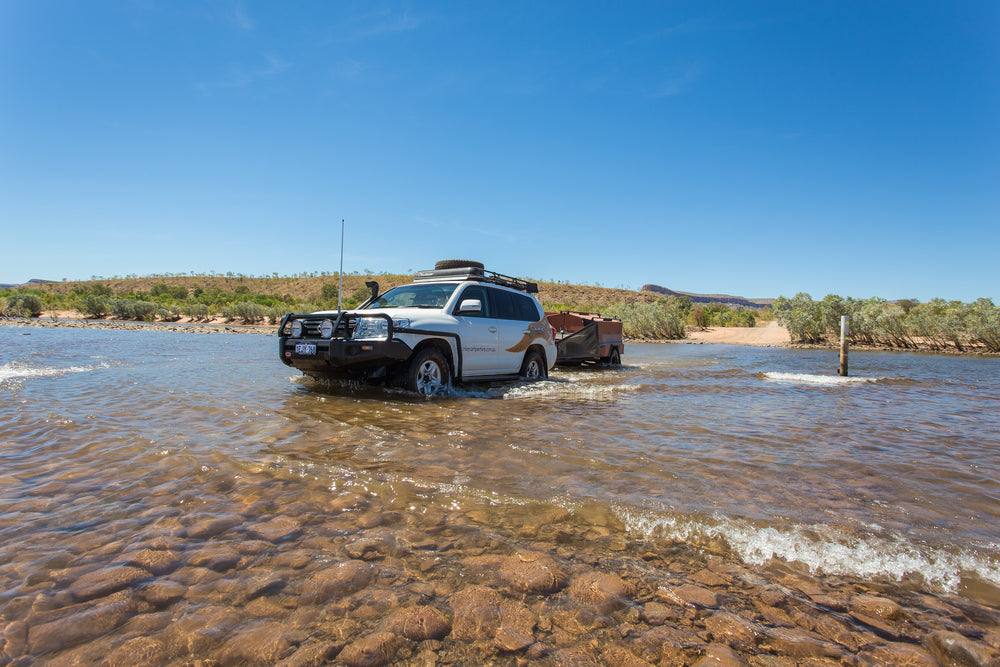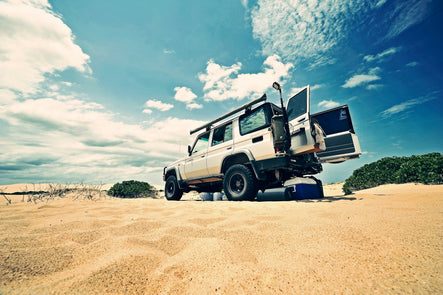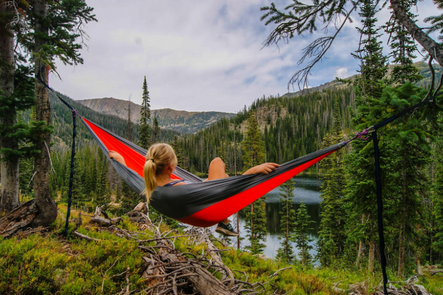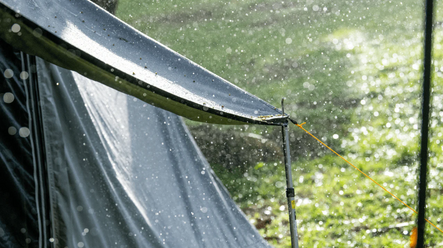Good car suspension is important and good 4WD suspension is vital, but good caravan or camper trailer suspension is absolutely critical.
Your travel trailer is going to be hauling heavy loads across all sorts of terrain, especially if you're going to buy an off-road camper trailer.
When it comes to camper trailers, independent suspension systems, or axle-less suspension systems, are often touted as the bee's knees, but do they live up to the hype?
If you're looking to buy a travel trailer or upgrade your camper's suspension, this article will tell you what you need to know about independent trailer suspension systems.
A Good Camper Trailer Suspension System Does This
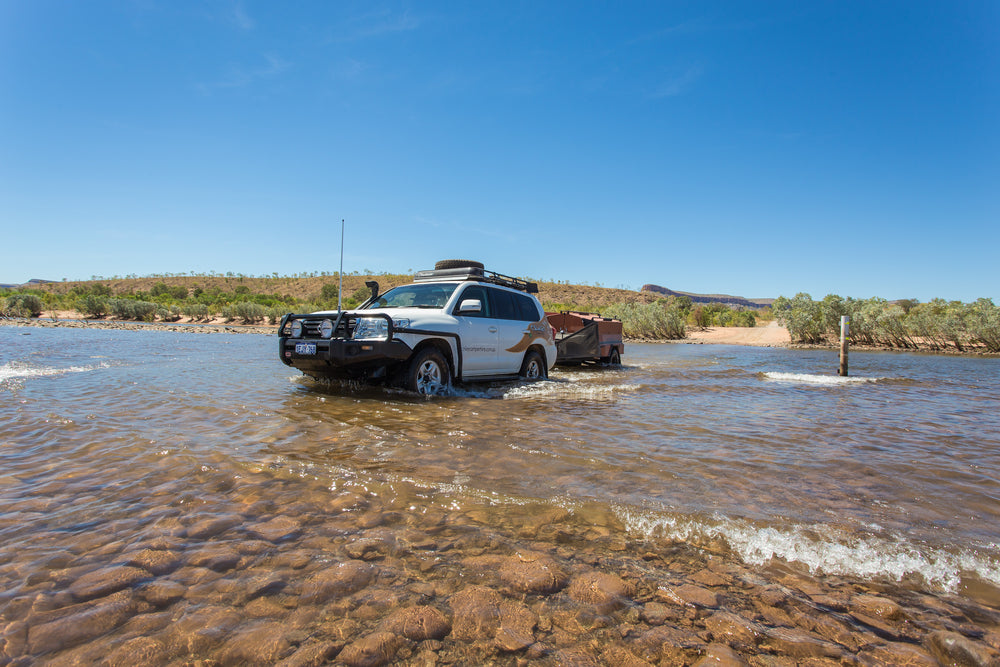
The bottom line about suspension is that doesn't matter what suspension type you have, as long as you have good suspension.
Good suspension will absorb every bump in your path across all sorts of on-road and off-road conditions. This will take the stress off your camper trailer, help to protect everything inside and make it easier for you to manoeuvre around corners and bends on calm and rough roads.
Good suspension will also make sure all the important parts underneath your camper trailer are clear off the ground so stones, sticks, and other objects don't damage your camper. This ground clearance is especially important in off-road environments where there are more ups and downs than a day-5 cricket pitch at the Gabba!
While the underside of your trailer is safely off the ground, a good suspension system will ensure the tyres are always making great contact with the road or path.
With good suspension, you won't feel your trailer bouncing around because the suspension is helping to absorb that and transform it into heat energy, giving you a smooth ride.
Your brakes, tyres, and fuel efficiency will also thank you for investing in quality suspension.
The Anatomy of Travel Trailer Suspension (How it Works)
In simple terms, your suspension system comprises springs and dampers that work together.
When your camper trailer goes over a bump, the spring takes in the energy to prevent your vehicle from bouncing around.
But if you know anything about springs, you know that they spring down and then spring back up.
To prevent the spring from sending back all the force of the bump, we have the damper, better known as the shock absorber. The shock absorbers take all the energy stored in the spring and convert it into heat. This causes the shock absorber to heat up and negates the force from the bump in the road, giving you as smooth a ride as possible.
A quick word on spring types
When looking into camper trailer suspension, you might also hear about leaf springs, coil springs, and airbags (or air springs). Each spring has its pros and cons, and any type of spring can feature in your suspension system - whether it's an independent design or otherwise.
Leaf springs are more like sheets that rub together. They can handle greater vehicle weight limits and have some shock-absorbing qualities of their own. Some leaf springs even operate without additional shock absorbers.
Coil springs can't handle as much weight but they can absorb more motion and they're more durable.
Air springs inflate and deflate in the same way that coil springs bounce up and down. They're easier to adjust for different load capacities and road conditions, and they often come with self-levelling functionality.
Coil springs and airbags are most common in independent suspension systems.
Introducing Independent Suspension: Features and Benefits
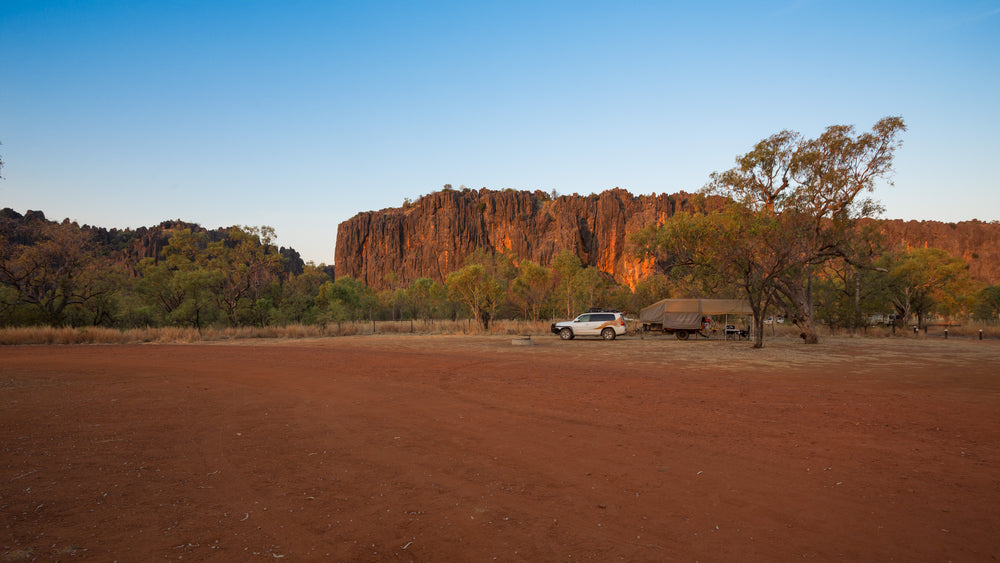
Now that we've handled the fundamentals, let's talk more about independent suspension.
Think of the wheels on either side of your trailer.
Conventional suspension systems have what's called a live axle (otherwise known as the beam axle or solid axle). This is one continuous axle that connects the wheel on one side of your trailer to the wheel on the other side.
So, if you're bashing down a dirt track and there's a bump on one side of the road, both wheels will be affected to some extent and the springs and dampers on both sides will need to activate.
Independent suspension replaces one long beam with two shorter axles that aren't connected. In the same dirt track scenario, only one wheel is affected and the other hardly feels the effect at all. Of course, if one wheel moves up or down, this will naturally affect the other one, but not in quite the same way as live suspension systems.
Pros of Independent Suspension for Camper Trailers
- Independent suspension systems can achieve greater ground clearance
- The suspension on either side of your trailer can operate independently and can activate accordingly
- Independent suspension systems are ideal for off-road environments
- Independent suspension systems allow for camber and toe adjustments. This allows you to lean your wheels slightly in and point them slightly in and out from the trailer, which can improve stability in some situations.
- Independent trailer suspension offers greater steering correction capabilities
Cons of Independent Suspension for Camper Trailers
- Independent suspension systems involve more complex manufacturing, resulting in higher costs for trailers that have these systems
- Maintenance costs may also be more expensive for campers with independent suspension systems
- There is an argument that independent trailer suspension can become more easily overloaded as these systems are not "sharing the load". In reality, the Australian Design Rules (ADRs) specify that independent systems must be able to handle 120% of the maximum permitted load. So, as long as you don't exceed your ATM, this shouldn't be an issue.
- As with all things, there are well-manufactured independent trailer suspension systems and poorly manufactured ones. Don't just buy blindly. Do your research first!
A Few Other Suspension Factors to Think About
Underslung Axles vs Overslung Axles
This is mainly a consideration for solid bar suspension and refers to whether the spring is mounted under the axle or over the axle.
Underslung systems are more stable but are more likely to scrape on the ground. Overslung systems have a higher centre of gravity, which offers much greater ground clearance but somewhat compromised stability.
The best option for you will depend on how much height you need, but whatever you do, ensure you don't prioritise clearance too much at the expense of stability.
Single Axle vs Double Axle vs Multi-Axle vs Axle-less
If your travel trailer is a single axle, it has one set of wheels (one on either side, front and back).
If it is a double axle or multi-axle, there are two or more wheels on either side.
Single Axle designs are much easier to manoeuvre but can carry much less weight. Conversely, multi-axle designs are required for larger and longer trailers due to their increased weight capacity, but they are harder to manoeuvre, especially in reverse. Multi-axle designs can also operate better if a single tyre is punctured or completely blown.
While wheels can't technically operate without an axle, you can get "axle-less" designs where each wheel has its own independent axis operating with independent suspension. This is why independent suspension is sometimes known as axle-less suspension.
You can also get tandem axle independent trailer suspension, where two tyres sit one behind the other and operate independently.
At the end of the day, it all comes down to the weight of your camper trailer and how much you prioritise manoeuvrability.
Are Shock Absorbers Essential?
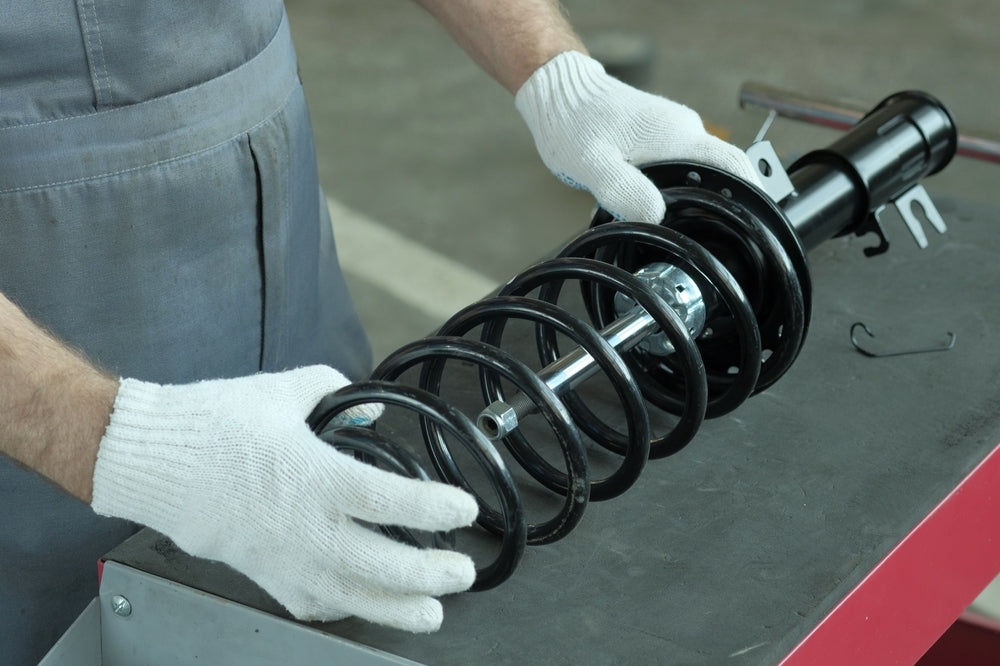
Ultimately, you're better off with shock absorbers. They are essential for coil spring systems, which have no rebound control whatsoever.
You might be able to get away with no shock absorbers on leaf spring or air spring systems, which have some damping qualities, but having shock absorbers is always better.
Is Independent Suspension the Be-All and End-All?
Definitely not!
Your suspension system aside, you need to make sure weight is properly distributed in your camper trailer and that you're not overloading the trailer.
Your tow ball and drawbar need to be up to the task in terms of weight capacity, and things like weight distribution hitches and anti-sway devices are important, too.
Finally, the overall build quality of your camper trailer is important.
And remember, your tow vehicle needs to be up to the job, too. The bigger the camper trailer compared to the tow vehicle, the more important all these considerations are.
What Sort of Suspension Is Available in the Camping Adventures Range?
Camping Adventures are authorised dealers of Patriot Camper Trailers and Lifestyle Campers in Victoria and Tasmania.
Our Lifestyle hybrid campers and Patriot Campers both come with market-leading Cruisemaster independent trailer suspension systems. There are options for coil spring or airbag technology, as well as dual shock absorbers.
Are you looking for independent suspension camper trailers in Melbourne or Hobart? Maybe you're interested in upgrading your trailer suspension.
Reach out to Camping Adventures - the leaders in off-road camper trailers for sale and camper trailer maintenance.

